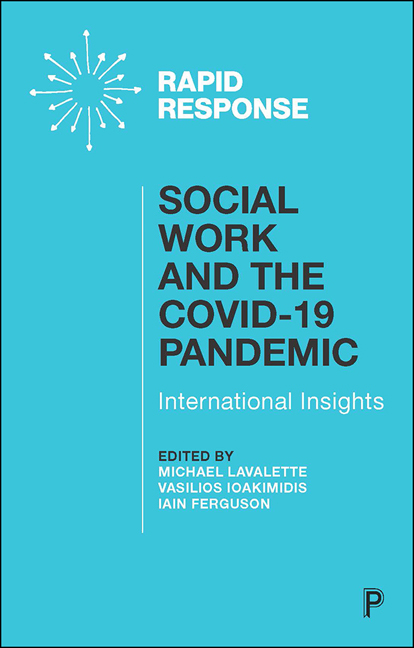Conclusion: No Return to ‘Business As Usual’
Published online by Cambridge University Press: 23 March 2021
Summary
The year 2020 has been marked by four interlinked crises: the climate emergency, the COVID-19 pandemic, the virus of racism and the brutality of deep recession. These are linked crises, rooted in the nature of modern capitalism.
Capitalism is a system that is built upon ruthless, anarchic competition. It generates vast inequalities and it leaves large numbers of people struggling in the face of poverty (Dorling 2019). It uses, abuses and exploits people's labour and, in the process, it divides people against each other and leaves us feeling ‘alienated’ (Lavalette and Ferguson 2018). It creates the conditions within which racism, sexism and other forms of oppression manifest (German 2018; Callinicos 1992). It exploits and abuses the natural world and is destructive of ecosystems that are necessary to sustain life (Angus 2016). And it creates the conditions in which new viruses can more easily develop and spread (Davis 2020). This is a system that puts the demands of profit maximisation before the needs of people and planet – with devastating consequences.
This collection represents the third of a trilogy of books that we have been involved with which aims to trace the impact of modern capitalism on people's lives and on social work activities (see also Ferguson, Ioakimidis and Lavalette 2016; Lavalette 2019). Over these three books our argument is that social work can make a very positive contribution to people's lives – but this is not inevitable! Indeed, what we mean by social work, the activities associated with the profession, the theories that shape its interventions, are all contested. Our argument is that over the last 20– 30 years what we term ‘neoliberal social work’ has grown in influence and shaped institutional practices. As John Harris (2002) argues social work has become more ‘business like’ (in terms of how it treats its professionals as workers and prioritises managerial authority; how it adopts the logic of marketisation and competition in service delivery; and how target setting and rationing of services have become normalised). But we have always argued that there is another way, that another social work is possible.
Faced with the four great crises of 2020, neoliberal social work failed. It revealed itself as an ‘emperor without clothes’.
- Type
- Chapter
- Information
- Social Work and the COVID-19 PandemicInternational Insights, pp. 153 - 156Publisher: Bristol University PressPrint publication year: 2020



